I am trying to connect to Google's MQTT server but I am getting errors I created all the certificates and registered my device (Adafruit huzzah32)
and the documentation says you connect to mqtt.googleapis.com:8883
So I do
WiFiClientSecure wifi;
MQTTClient client;
client.begin("mqtt.googleapis.com", 8883, wifi);
When I try to connect I use the device path
const char* jwt = "{json web token}";
const char* device = "projects/{project-id}/locations/{cloud-region}/registries/{registry-id}/devices/{device-id}";
Serial.print("Connecting to mqtt");
while (!client.connect(device,"unused",jwt)) {
Serial.print(".");
delay(1000);
}
Serial.println();
Serial.println("Connected to mqtt");
but it never connects
I verified the google certificate by calling
openssl s_client -showcerts -connect mqtt.googleapis.com:8883
and I put in my RSA Private key and certificate key that was made
wifi.setCACert(googleCertificate2);
wifi.setCertificate(myCertificate);
wifi.setPrivateKey(privateCert);
What am I doing wrong?
Here is the connection documentation https://cloud.google.com/iot/docs/how-tos/mqtt-bridge
Update
I made a quick java example to see if I can connect going off the example they have for connecting and I get a MqttException saying Bad user name or password (4)
Here is the code for that
private void doStuff(){
String clientId = String.format("ssl://%s:%s", "mqtt.googleapis.com", 8883);
String mqttClientId = String.format("projects/%s/locations/%s/registries/%s/devices/%s","{project_id}", "us-central1", "{register}", "{device}");
MqttConnectOptions connectOptions = new MqttConnectOptions();
connectOptions.setMqttVersion(MqttConnectOptions.MQTT_VERSION_3_1_1);
Properties sslProps = new Properties();
sslProps.setProperty("com.ibm.ssl.protocol", "TLSv1.2");
connectOptions.setSSLProperties(sslProps);
connectOptions.setUserName("unused");
try{
String jwt = createJwtRsa("{project-id}");
connectOptions.setPassword(jwt.toCharArray());
MqttClient client = new MqttClient(clientId, mqttClientId, new MemoryPersistence());
while(!client.isConnected()){
try{
client.connect(connectOptions);
}catch (MqttException e) {
e.printStackTrace();
}
}
Log.d("","");
}catch (Exception e){
e.printStackTrace();
}
}
private String createJwtRsa(String projectId) throws Exception {
DateTime now = new DateTime();
JwtBuilder jwtBuilder =
Jwts.builder().setIssuedAt(now.toDate()).setExpiration(now.plusDays(1000000).toDate()).setAudience(projectId);
byte[] keyBytes = readBytes(getAssets().open("rsa_private_pkcs8"));
PKCS8EncodedKeySpec spec = new PKCS8EncodedKeySpec(keyBytes);
KeyFactory kf = KeyFactory.getInstance("RSA");
PrivateKey k = kf.generatePrivate(spec);
return jwtBuilder.signWith(SignatureAlgorithm.RS256, k).compact();
}
As you can see here I have the IoT service acount added to IAM

Does that mean my keys that I generated with openssl are incorrect?